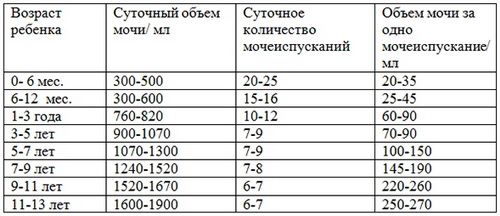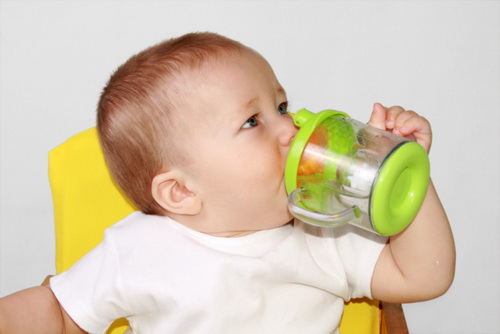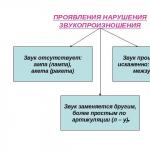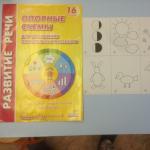Rare urination in a child: where to look for the reasons
At different ages, children may experience rare urination, and parents begin to sound the alarm: what is wrong with the baby? Most often, panic turns out to be completely in vain: a small body can simply rebuild to a new age regime, because it grows, its food becomes more solid - accordingly, and the amount of urination per day becomes less.
But sometimes there are cases when the cause of this phenomenon is a serious pathology of the urinary system, which requires long-term treatment. Therefore, first of all, you need to find out what factor became a provocateur of a decrease in urine excreted per day.
The reasons for this phenomenon can be very different. Often infrequent urination in an infant is due to the high fat content of the mother's milk. In such cases, the nurse needs to follow a certain diet in order to dilute the natural food for the baby. The second most frequent reason for this phenomenon is a decrease in urine excreted per day in accordance with the age norms that every mother should know:

The third common cause of infrequent urination is improper drinking regimen. It often happens that a small organism does not give signals that it needs liquid: the child does not ask for a drink at all. In this case, you need to regularly remind him that you need to do this and even force him. If there is neither the fat content of breast milk, nor the age limits indicated in the table, nor the drinking regimen, rare urination may be dictated by more serious reasons:
- kidney pathology, which partially lose the ability to produce the required amount of urine;
- diseases of the ureters, their partial blockage;
- damage to the bladder (often with too long abstinence from emptying it);
- uncontrolled, improper use of diuretics;
- hysteria, hypochondria, nervous fever;
- excessive stretching of the bladder;
- back or brain injury;
- stones, sand in the kidneys or in the bladder;
- pinched urethra;
- neoplasm of blood vessels;
Rare urination in a child caused by these diseases and pathologies will require long-term drug treatment up to surgery. Therefore, it is so important to carefully monitor the state of a small organism and recognize the trouble in time.
Symptoms of problem urination
You can suspect a serious illness if you have the following symptoms, which usually accompany rare urination in such cases:
- the stream of urine is thin, has a weak pressure;
- urine is discharged in drops;
- this process becomes possible only with a specific, definite position of the body;
- burning, soreness;
- the urge to empty the bladder is felt, but accompanied by cramps and a feeling of strong pressure.
Treatment

The main therapy is to eliminate the factors that provoked the disease. An individual approach is applied to each little patient. The main methods of treating bladder pathologies, which result in rare urination, are:
- 1. Hip bath
At the very beginning of the treatment, the water temperature of such a bath is 26 ° C, but it is gradually increased to 30 ° C. In case of inflammatory processes, sitz baths are prescribed once a day for 15 minutes.
- 2. Compresses
Compresses may be prescribed to the location of the bladder. Sometimes, more extensive compresses may be applied to the whole body. If an inflammatory process is observed in the body, soothing compresses are applied to the baby's lower abdomen.
- 3. Therapeutic diet
This condition in children may also depend on their nutrition, therefore, with such a pathology, it is recommended to follow a certain diet. First, food should not irritate the stomach wall. Secondly, you need to give the child to drink as much liquid as possible.
- 4. Douching
Douching is prescribed for a child only by a doctor only if the rare emptying of the bladder is accompanied by pain and discomfort. If the disorder is severe, this procedure is performed using a catheter in a hospital.
If all of the above methods of treatment turn out to be ineffective, and the baby's condition does not change or improve, the only way out can be only surgery (in case of serious pathology of the genitourinary system). But to confirm the diagnosis, numerous laboratory tests, tests, ultrasound and other diagnostic methods are first carried out. However, most often, a child's rare urination does not have such serious reasons and very soon disappears with the normalization of the drinking regime and proper nutrition.






